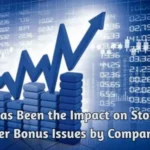AMC, DP charges, and other fees are frequent in demat accounts. It has become more vital to open and manage a demat account as more people put their money into the stock market. To manage your portfolio well and at a low cost, you need to know about all the different fees, especially what dp charges. Investors should know the ongoing and transaction fees that come with opening a free demat account with a broker so that they don’t damage their results.
What are DP Charges?

What do dp charges mean? This is the most crucial question for any investment.
When you sell or move securities from your demat account, banks and brokers, who are Depository Participants (DPs), charge you DP fees. Depositories like CDSL and NSDL set these costs, and they must be paid for every transaction that applies. Most of the time, DP costs are charged during:
- Selling equities that are in your demat account (delivery-based sell transactions)
- Moving equities to a separate demat account (off-market)
- Using shares as collateral for loans or margin
When you buy or sell shares throughout the day, DP costs don’t apply because no securities leave the demat account in these cases.
A Breakdown of DP Fees
The following make up DP fees:
- CDSL/NSDL sets the depository fees, and they are the same for every transaction. For example, CDSL charges ₹5.50 per ISIN per day.
- Extra fees that your broker or DP determines, usually between ₹0 and ₹20.
- GST: 18% of the entire amount (depository + broker charge)
If you sell shares, for instance, the fee might be ₹5.50 (CDSL), ₹10 (broker), and then GST on the subtotal, which would be the total DP charge per ISIN every day.
Other Fees and Yearly Maintenance Costs (AMC)
Investors should know about Annual Maintenance Charges (AMC) in addition to transactional dp charges.
No matter how many trades you do or how much money you have in your demat account, these are the yearly charges to keep it open. Varying brokers may have varying AMCs, and they may even waive them during special offers, especially if you open a free demat account. But long-term investors should check to determine if the AMC is still in effect after the launch period.
Other fees that are prevalent are:
- Most of the best online brokers don’t charge anything to start an account.
- Fees for transactions: You have to pay to sell or transfer securities, but not to acquire or credit them.
- Pledge and unpledge fees: These are costs you have to pay when you pledge shares for loans or margin.
- Fees for dematerialization and rematerialization: These are for turning physical shares into electronic ones and back again.
How to Open a Demat Account for Free
It’s now quick and easy to open a free demat account, and most investors can start their trip without paying anything up front.
These are the steps:
- Picking a SEBI-registered DP and ensuring sure they are connected to CDSL or NSDL
- Finishing e-KYC by sending in key documents such as your PAN, Aadhaar, and proof of your bank account
- Verifying in person (usually by video)
- Signing the application form online
A lot of brokers don’t charge anything to open an account anymore, and often even waive AMC for the first year. But you should check the list of fees so you don’t receive any surprises after the special period ends.
Taking Care of and Decreasing Demat Fees
To get the most out of their assets and keep costs down, investors should do the following:
- To lower the number of DP costs you have to pay, plan your sales and off-market deals wisely.
- Don’t split up sell orders for the same ISIN over a few days.
- Before hiring a DP or broker, consider their fee regimes.
- Check your account records for any fees. Being honest and looking over your bills often could help you not pay more than you have to.
In the End
Investors may make sensible choices, protect their gains, and not spend too much if they know what dp charges are and how demat account costs work.
Starting a free demat account is easy, but it’s necessary to regularly check and manage your costs, such as DP, AMC, and others, to keep your funds healthy and your portfolio expanding over time.

